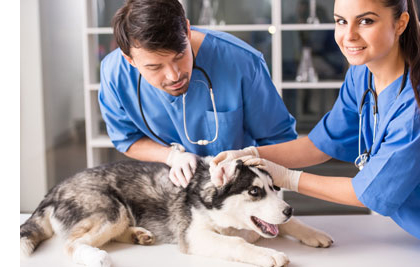Have you ever wondered how many different career opportunities are accessible to you with your veterinary assistant certificate? There are numerous different paths one can take while working with a variety of animals. Whether you’re interested in working with zoo animals, equine, farm animals, reptiles, falconry, in a laboratory or the most common, dogs and cats, the opportunities are almost endless.
The first step is making your resume appealing to your specific audience. Know your strengths so that you can emphasize them in your resume and grab the reader’s attention. Did you previously work in retail? Then maybe you will have great sales tactics and client communication. Did you work in a restaurant or fast-food establishment? Then maybe you possess extraordinary teamwork, time management and organizational skills. These are all great proficiencies to add into your resume. Just because you don’t have a lot of experience yet, does not mean an entry level position is out of reach. Sometimes the only way to get your foot in the door is to accept an entry level position within the desired company.

Another way to boost your resume is to reference your knowledge of your local/territorial medical concerns. The area you live in may have high occurrences of heartworm disease, Lyme disease, valley fever, etc. Sometimes there are vaccines and or medications available to help these ailments. This knowledge will be important to know and should be researched to gain additional knowledge. Many times, you can find online certificate classes or seminars directed towards these conditions. Some larger hospitals may even supply these opportunities to the public at no charge. Adding these certificates or education credits will catch an employer’s eye.
Veterinary assistants are needed in all aspects of medicine and are not limited to just the one title of “veterinary assistant.” Positions may also be labeled as kennel assistant/attendant, client care associate, receptionist, animal care attendant, and animal care specialist to name just a few. Always be sure to review the description of the job itself, to see if you meet the qualifications. Keep in mind that if the duties are not exactly what you expected, these positions will gain you the experience needed to advance within veterinary medicine. Often when expectations are met or exceeded promotions are awarded quickly.
Now that you have boosted your resume, and know what titles to look for, who can you send your resume to? If working with domestic cats and dogs has been your goal, find out what is in your area. There may be more than clinics and hospitals available within your driving range. There could be emergency hospitals, specialty clinics, vaccine clinics, or mobile clinics within proximity. If you know you want to do something more specialized like working with, equine, large/farm animal, exotics, dentistry, ophthalmology, dermatology, cardiology, internal medicine, oncology, orthopedics, you may need to expand your radius. Especially with specialty facilities it can be difficult getting in the door. As mentioned, taking an entry level position may be your best option for career advancement, as these can be highly sought-after positions.
On the other hand, you may be looking for something not so traditional. Universities often have labs and/or hospitals on campus that need receptionists, kennel attendants and veterinary assistants. These labs can vary in animals housed ranging from cats, dogs, mice, rats, rabbits, guinea pigs, monkeys, chimps, pigs, sheep, and many other species. If working in a diagnostic lab interests you, there may be laboratories in your area that assist veterinarians with diagnostic tests. These labs usually are equipped with the latest and greatest technologies needed to perform all sorts of diagnostic tests including routine blood work, urinalysis, infectious disease tests, fecal ova and parasite tests, fecal antigen testing, cytology, and histopathology.
Sometimes the physical demands of these positions can be overwhelming or unmanageable and other accommodations need to be explored. Organizations like pet pharmacies or apothecaries can be a lot of fun and mentally challenging. These locations are essential for clinics and hospitals to make patient specific prescriptions for non-traditional and traditional routes. For example, many cats are extremely difficult to give medications to and an apothecary can turn many drugs into transdermal medications. Transdermal medications are applied directly to their skin and are slowly absorbed. For some fractious patients this can be lifesaving. Another avenue could be education, ranging in online forums to on-ground opportunities. Additional schooling may be necessary in many cases. Online opportunities are also starting to become abundant between help lines, poison control and insurance companies.
While some experience is needed for many of these opportunities, your externship may or may not provide enough time for “experience” employers are seeking. For more information on options to obtaining more hours and experience, check out another article “How do I get more hands on more training?”
As you can see, there are many career opportunities for you with a veterinary assistant certificate. Conduct further research in the areas that you are interested in to see what the requirements are and if the position lines up with your goals. Do not think that you are limited to just working in a veterinary clinic after you earn your veterinary assistant certificate. For more information on becoming an Animal Behavior College Veterinary Assistant, check our website at https://www.animalbehaviorcollege.com/veterinary-assistant/ .





